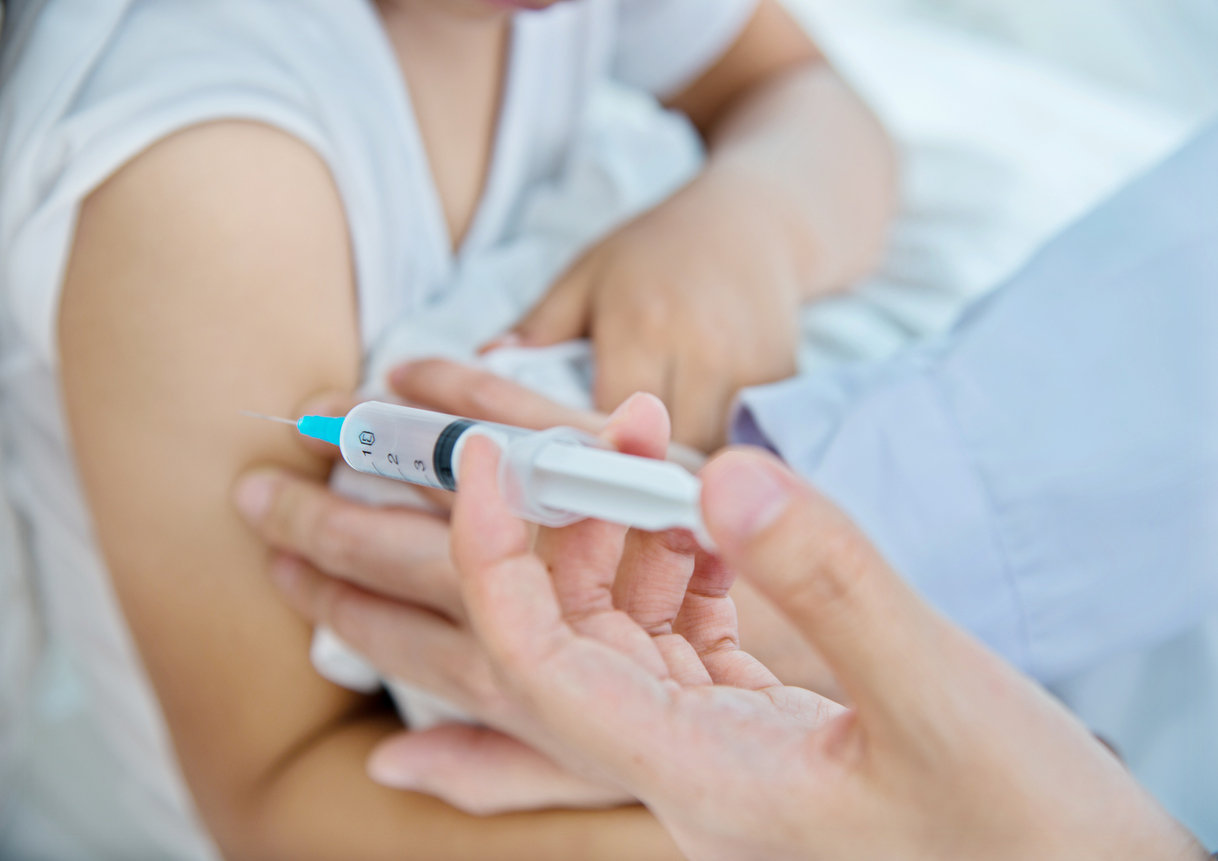
Members of the American Medical Association House of Delegates voted this past week on whether "mature minors" should have a greater role in making decisions for their own health. The vote took place during the AMA's annual meeting in Chicago. Several members of the committee argued that minors should be allowed to ask to be vaccinated — even if it goes against their parents' wishes.
The committee met Monday to vote on whether minors should be allowed to override their parents' decision on vaccines.
The idea was proposed in response to the growing measles outbreak, which has been reaching a record number of cases within the past year, according to MedPage Today. "The increasing frequency of outbreaks of vaccine-preventable illnesses is a devastating crisis, the burden of which falls squarely on the shoulders of some of the most vulnerable in our population and our society," Dr. Sarp Aksel said in the meeting.
According to the Centers for Disease Control and Prevention, between January 1 to June 6, 2019, 1,022 individual cases of measles were confirmed in 28 states. The CDC noted that most of these cases have been found in people who were unvaccinated. Kids in particular have been hit hard during the outbreak, which is why the AMA is calling for minors to be allowed to have a say in whether they receive the vaccine.
"Minors who have demonstrated capacity as determined by a physician and who are able to provide informed consent should be able to receive vaccinations regardless of the flawed beliefs of their guardians," Aksel continued. "The AMA should remain committed to efforts to increase vaccination rates, and this resolution should support state legislators to establish policies."
Committee members also argued that minors already have the right to "consent to other treatments" without parental consent.
"There is a national concern over recent outbreaks of vaccine-preventable illnesses such as measles, mumps, and pertussis," Dr. Samyuktha (Sami) Melachuri said. Melachuri continued that often "parental resistance" is a "barrier for vaccinations, even for adolescents who may want to be immunized.
"Our AMA already supports the rights of minors to consent for other treatments such as [for sexually transmitted diseases] or HIV without parental consent, and supports the importance of childhood immunizations, so it's reasonable to extend the support for minors," the doctor added.
The AMA also voted to encourage states to establish comprehensive vaccine and minor consent policies.
But not everyone whole-heartedly agreed. Some delegates had concerns over the struggle between parent and child if the child chooses to get vaccinated against their parent's wishes.
"The delegation does have a concern about mature minors [being] able to say 'I don't want that vaccination' when their parent wants them to get it, and how we deal with that," said Dr. Charles Barone.
Delegates also debated who should be qualified a "mature minor" and how that distinction should be made.
One doctor argued that the term "mature minor" has been a legal term that has historically been upheld in children 16 and older and typically pertains to a child who is educated and "expresses a mature understanding of what's going on."
The committee debated moving the age down even lower. "'Adolescent' drops that down closer to 10; my pediatric colleagues … tell me they're using HPV [vaccine] as early as [age 8 years], so we have some language that needs to be massaged … but really what we're trying to do is encourage vaccinations for the kids," Dr. Mark Bair explained.
There are also issues that might prove to be barriers to the initiative, including paying for the shots, which would still fall under a parent's responsibility. One person also expressed concern that the initiative could be seen as "chipping away at parental rights."
In the end, the group settled on making the initiative geared toward minors — not adolescents — "to override their parent's refusal." According to the Chicago Tribune, association members ended up voting in support of policies that would allow minors this right and will encourage state lawmakers to establish "comprehensive" minor consent vaccine policies.




